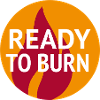Open fires and wood-burning stoves
How to reduce the environmental and health impacts of open fires and wood-burning stoves.
We discourage you from using open fires and wood-burning stoves as they can cause air pollution, can upset neighbours and can damage health, particularly of children, older people, and those with breathing and heart conditions.
Smoke control areas
There are no smoke control areas in Uttlesford.
This means that there are no restrictions on the smoke that you can emit from a chimney, the type of appliances you can use or the fuels you can burn. However we encourage you to think about why you are lighting your fire and the impact it may be having on your health and those around you.
There is more information on smoke control areas on GOV.UK.
Using open fires and wood-burning stoves
Open fires and wood-burning stoves are not an efficient ways to heat your home Smoke from burning causes air pollution which harms the health of millions.
The Department for Environment, Food & Rural Affairs (Defra) has put together a practical guide (PDF) [221 KB] that provides simple steps to reduce the environmental and health impacts of open fires and wood-burning stoves by:
- maximising efficiency, meaning you burn less fuel
- reducing the risk of chimney fires
- reducing smoke and carbon monoxide which can be harmful to you and your neighbours
Burning wood and coal

If you buy kindling, firewood or solid fuels for domestic use, look for the Ready to Burn logo. This means it will burn more cleanly and efficiently.
If you use house coal, use approved solid fuels instead. These produce less smoke compared to house coal when burned. They can also be more efficient so cost you less money to heat your home. Defra publishes a list of approved fuels.
When storing your fuel, it's important to keep it dry because burning damp fuel may produce smoke.
Buying a stove or wood-burner
Since January 2022, all new wood-burning and multi-fuel stoves must adhere to emissions and efficiency regulations known as Ecodesign. They produce lower emissions and are more efficient than non Ecodesign stoves and open fires.
When buying a wood-burning or multi-fuel stove you should look to see if it is HETAS or clearSkies compliant.
Outdoors
Be considerate towards your neighbours when lighting bonfires, outdoor burners and BBQs and always take care not to cause a smoke nuisance. However, bonfires can:
- cause problems for people with health conditions
- be a nuisance to those who wish to use their gardens, including hanging out washing to dry
We have more information and how to report a smoke problem to us on our bonfires page.
Advice
Defra has advice on making changes for cleaner air which explains why is it important to improve the way we burn fuels in the home.
You can also find facts about wood burning and the effect on health on the Clean Air Hub's wood burners pages.
The government's Clean Air Strategy 2019 on GOV.UK sets out national plans for dealing with all sources of air pollution, making our air healthier to breathe, protecting nature and boosting the economy.
Fires are not a cost-effective way to heat your home. You can get advice how to get a better deal on your energy and what you can do to improve energy efficiency and from organisations such as the Energy Saving Trust.





